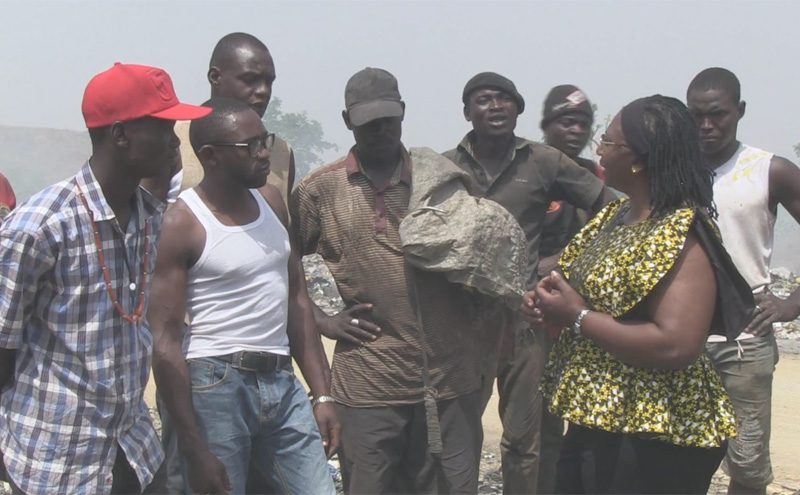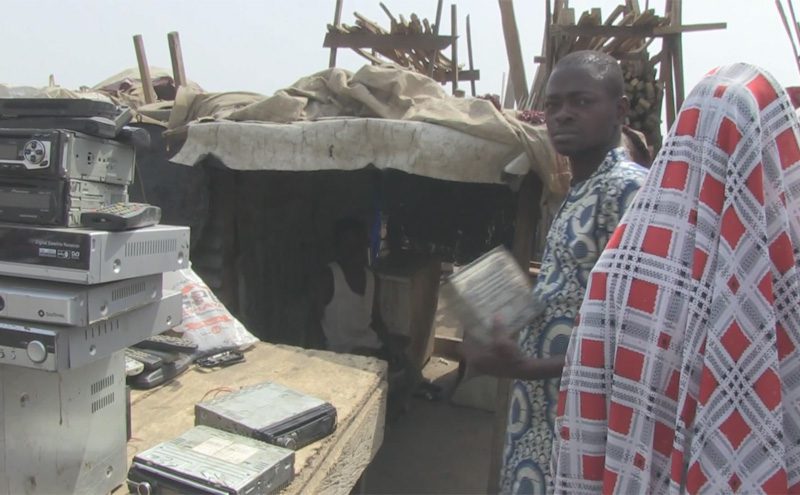
On 15 January the Nigerian TV channel NTA broadcast a 30-minute documentary entitled “What has gender got to do with chemicals?”
In Africa’s most populated country – with almost 200 million inhabitants – toxic pollution from waste is a serious challenge to society, the economy and security, say the makers of the programme. The documentary looks at how waste is leading to toxic pollution in Nigeria and the solutions being worked on.
The film shows how people are impacted by toxic pollution from waste and chemicals – partly imported illegally from Europe and America – while it visits the hidden e-waste markets and waste dumps around the country.
As the programme makers point out, although authorities have already stopped a number of container ships carrying illicit imports of e-waste, the problem is much larger, as products imported and produced legally, such as plastic packaging and industrial products, also become toxic when burned in the open. This pollutes food, air, water and agricultural soils with so-called POPs (persistent organic pollutants) which can cause cancer, and lead to the rejection of food exports from Nigeria.The film also shows how social entrepreneurs, women’s organisations, authorities and the UN are working on solutions, such as waste collection, recycling and the production of safe pesticides from the indigenous NEEM tree.

The documentary was broadcast in Nigeria on 15 January 2018, and is also available on YouTube: https://www.youtube.com/watch?v=YugG5jZ8Vvw.
A screening with representatives from government and civic society took place at an event organised by WEP Nigeria and WECF on 10 January at the Royal Choice Inn in Abuja, followed by a panel discussion with representatives from the Ministry of Environment and the UN.
Scoping study
The film is accompanied by the publication Gender Dimensions of Hazardous Chemicals and Waste policies under the Basel, Rotterdam and Stockholm Conventions. This was a scoping study carried out in connection with the BRS (Basel, Rotterdam and Stockholm) Conventions, which aimed to understand how men and women are affected differently by POPs, hazardous chemicals and waste. It also looked at how their respectivev occupations and roles at home and at work influence exposure to these substances, as well as what best practices exist to help eliminate exposure.
About the film
The film was produced by WECF, WEP Nigeria (Women Environmental Programme) and BaliFokus with the support of the BRS Conventions secretariat and the governments of Germany and Sweden.
The Basel, Rotterdam and Stockholm (BRS) conventions are multilateral environmental agreements, which share the common objective of protecting human health and the environment from hazardous chemicals and wastes. The portion of the BRS Conventions website dealing with the Nigerian scoping study is viewable here: http://www.brsmeas.org/Gender/Integratinggender/ScopingstudyinNigeria/tabid/5815/lan guage/en-US/Default.aspx








